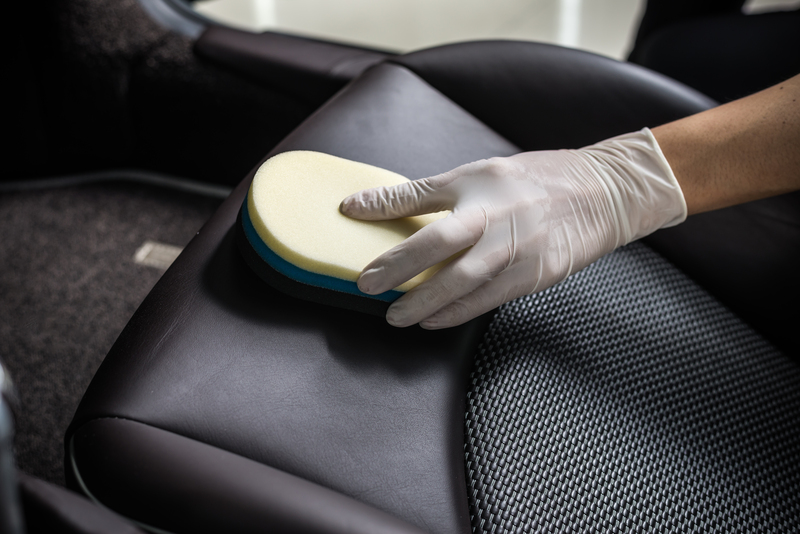Timing Guide for Sheet Changes
Posted on 06/04/2025
Keeping your bed linens fresh and clean is essential for a good night's sleep and overall hygiene. Understanding how often to change your sheets is crucial for maintaining a healthy sleeping environment. In this comprehensive guide, we will cover everything you need to know about the timing of sheet changes, including tips, pros and cons, and key takeaways.
Why Regular Sheet Changes are Important
Changing your sheets regularly has multiple benefits. It helps in reducing allergens, preventing skin breakouts, and avoiding unpleasant odors. Dirty sheets can harbor dust mites, bacteria, dead skin cells, and even fungi. These contaminants can exacerbate allergies, lead to skin conditions, and disrupt your sleep.

Factors Influencing Sheet Change Frequency
The optimal frequency for changing your sheets depends on various factors:
1. Personal Habits: If you sweat a lot at night, eat in bed, or share your bed with pets, you may need to change your sheets more frequently.
2. Health Conditions: If you have allergies, asthma, or other respiratory issues, consider changing your sheets more often.
3. Seasonal Variations: Warmer climates or seasons may cause you to sweat more, necessitating more frequent sheet changes.
4. Hygiene Preferences: Personal preference plays a big role in determining how often you change your sheets.
General Guidelines for Sheet Changes
For most people, changing bed sheets once a week is a good rule of thumb. However, based on the previously mentioned factors, you may need to adjust this frequency.
1. Weekly: For most people, changing sheets every week is sufficient.
2. Bi-weekly: If you don't sweat much or have fewer hygiene concerns, bi-weekly changes might be acceptable.
3. Twice a Week: If you have pets that sleep in your bed or suffer from severe allergies, consider changing sheets twice a week.
Tips for Efficient Sheet Changes
Changing your sheets can be a hassle, but these tips can make the task easier:
1. Keep Multiple Sets: Having at least two or three sets of sheets makes it easier to change them regularly.
2. Use a Laundry Schedule: Set specific days for laundry to keep up with regular sheet changes.
3. Quick Change Technique: Strip and remake the bed immediately to avoid procrastination.
4. High-Quality Sheets: Invest in durable, high-quality sheets that can withstand frequent washing.
Pros and Cons
Pros:
- Improved Hygiene: Regularly changing your sheets helps to remove dust, bacteria, and allergens.
- Better Sleep: Clean sheets can contribute to a more comfortable and restful sleep.
- Aesthetic Appeal: Fresh sheets enhance the overall appearance of your bedroom.
Cons:
- Time-Consuming: Regular sheet changes can be time-consuming, especially if you have a busy schedule.
- Laundry Load: Increased frequency of changes can add to your laundry workload.
- Cost: Investing in multiple sets of high-quality sheets might be expensive.

Key Takeaways
1. Frequency Depends on Multiple Factors: Adjust the frequency of sheet changes based on personal habits, health conditions, and seasonal variations.
2. Weekly Changes: For most people, changing sheets once a week is optimal for maintaining health and hygiene.
3. Invest in Quality: Having multiple sets of high-quality sheets can make the process easier and ensure better durability.
4. Prioritize Hygiene: Regular sheet changes are key to preventing health issues and improving sleep quality.
Conclusion
Changing your sheets regularly is more than just a chore--it's a vital aspect of maintaining a healthy and comfortable sleeping environment. By understanding the factors that influence how often you should change your sheets, and following practical tips, you can ensure you enjoy the benefits of clean and fresh bedding. Balance the pros and cons to find a routine that works best for you, and prioritize this small task for a big impact on your overall well-being.
Latest Posts
Transform Your Kitchen with Pro Oven Cleaning Tips
The Surprising Link Between Home Cleanliness and Mental Wellbeing

 Company name:
Company name:  Telephone:
Telephone:  Opening Hours:
Opening Hours:  Street address:
Street address:  City:
City:  E-mail:
E-mail:  Web:
Web:  Description:
Description: 







